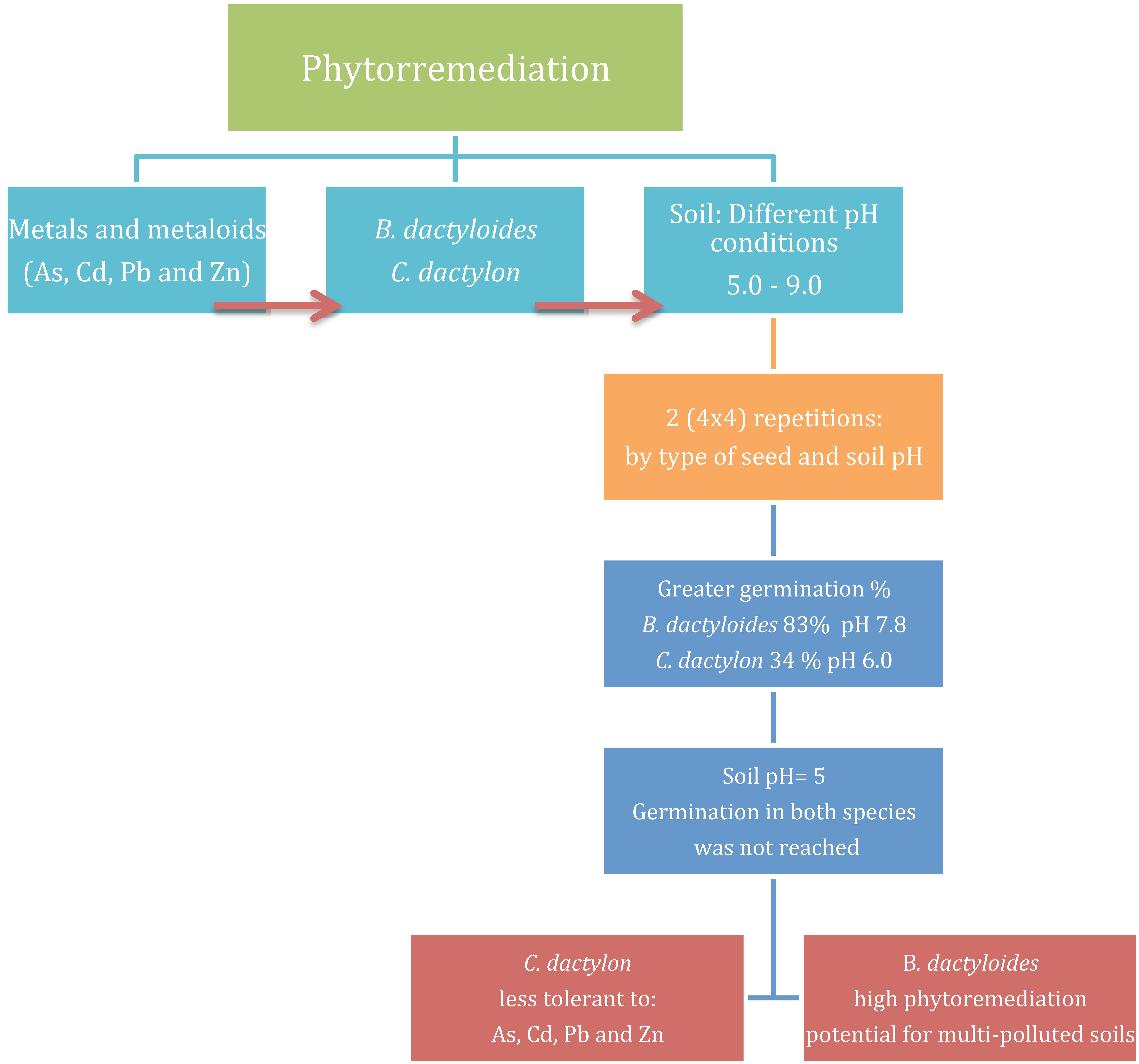Mining wastes generate a high environmental impact, and population exposure to metals and metalloids. Phytoremediation is a technology that uses plants to remediate polluted sites, one of its limitations is seed germination in soil with high content of metals and metalloids. B. dactyloides is a native specie from semiarid regions, while C. dactylon is an introduced specie, both are tolerant to drought and low temperatures. Owing, the objective of this research was to evaluate the germination of both species, exposed to a multi-polluted soil with As, Cd, Pb and Zn of a mining site, pondering different pH conditions (from 5.0 to 9.0). The study considered 4 repetitions by type of seed and soil pH. B. dactyloides showed higher germination percentage (83%) with pH 7.8; while the greater germination of C. dactylon was 34 % at pH 6.0. In the soil at pH 5, the germination in both species was not reached, owing that metals are more bioavailable in an acid environment. C. dactylon is less tolerant to As, Cd, Pb and Zn, so it is considered not effective for phytoremediation process. B. dactyloides has a high phytoremediation potential for multi-polluted sites, but further experiments are needed.

